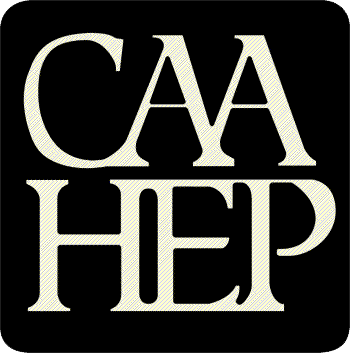EMERGENCY MEDICAL SERVICES
The Emergency Medical Services (EMS) Academy at Kellogg Community College offers students the opportunity to earn a degree or certificate that will allow them to provide care for individuals who are ill, sick or injured. Depending on the needs of the student and level of care they wish to provide, various EMS Program offerings are available, ranging from a single class to a two-year degree.
Individuals who enter the EMS profession enjoy helping others and are willing to work under stressful conditions as a prehospital health care providers. KCC’s program is designed so that students can ladder their credentials as they progress through higher levels of education. Graduates of the program work as police officers, firefighters, emergency medical technicians (EMTs) or paramedics, factory and business emergency responders, emergency room technicians and more.
KCC’s EMS Program is taught on the medical model of education. Related professions on this model include physicians and physician assistants, and EMS Program graduates often use their KCC credentials to build upon their skills in other professions.
For more information about KCC’s EMS Program, view the degree and certificate paths below or see:
- Associate of Applied Science in Emergency Medical Services
- Emergency Medical Technician (EMT) course descriptions
EMS Programs at KCC
KCC offers the following credentials through the EMS Program. Click on the appropriate header to view the coursework required for each credential.
Associate in Applied Science in Emergency Medical Services
KCC’s Associate in Applied Science degree in EMS allows the students to complete their education at the associate-degree level by adding some general education courses to their Basic EMT and Paramedic certificate programs. Students can use their EMS degree to continue their education in a bachelor’s degree program at a four-year college or university.
KCC’s Associate in Applied Science in EMS Program totals 67 to 69 credit hours. The recommended sequence of courses for full-time students seeking the degree follows.
| MFR/EMT First Semester |
Fall 1 Second Semester |
Spring Third Semester |
Summer Forth Semester |
Fall 2 Fifth Semester |
|---|---|---|---|---|
| EMT 140: EMT Basic 1 (MFR) | EMT 200: Pharmacology 1 | EMT 205: Pharmacology 2 | EMT 230: Paramedic Advanced Practice | EMT 260: Paramedic Internship |
| EMT 141: EMT Basic 2 (MFR-EMT Matriculation) | EMT 211: Cardiology 1 | EMT 216: Cardiology 2 | EMT 235: Paramedic Pediatric Advance Life Support | EMT 261: Paramedic Field Prep |
| EMT 142: EMT Basic Simulation | EMT 221: Paramedic 1 | EMT 225: Paramedic 2 | EMT 255: Clinical 2 | HUMA 151: Encounter with the Arts* |
| EMT 143: EMT Basic Clinical | EMT 240: Skills Lab 1 | EMT 245: Skills Lab 2 | PSYC 201: Introduction to Psychology* | ENGL 151: Freshman Composition* |
| EMT 144: Prehospital Trauma Life Support (PHTLS) | EMT 251: Introduction to the Clinical Experience |
EMT 252: Clinical 1 |
||
| FYS 101: First Year Experience | BIOL 105: Essentials of Human Anatomy & Physiology* |
*Courses indicated fulfill requirements for the Michigan Transfer Agreement (MTA), which provides for the transferability of up to 30 credit hours to meet General Education Requirements at participating Michigan colleges and universities.
Medical First Responder (MFR) Certificate
KCC’s entry-level Medical First Responder Academy is designed to provide the foundational education that will lead toward licensure with the MDHHS as a medical first responder. Students who successfully complete this course are certified as medical first responders, the first step toward licensure.
This course is designed for anyone who may be required to provide care for a sick or injured individual prior to the arrival of an ambulance. This includes, but is not limited to, firefighters, police officers and first response team members. The course includes training in CPR; bleeding control; airway management; splinting; extrication; oxygen therapy; and medical, environmental and other emergencies. The MFR Certificate Program consists of a single course, EMT 140.
| Required MFR Certificate Courses |
|---|
| EMT 140: EMT Basic 1 (MFR) |
Basic Emergency Medical Technician Certificate
KCC’s entry-level Basic EMT Certificate provides a foundational group of courses in EMS education leading toward licensure with the MDHHS as a basic emergency medical technician. While topics covered are similar to the MFR Certificate, this level provides a greater depth of education and training.
Students who hold a valid Medical First Responder license with the MDHHS will be granted admission directly into the MFR-EMT Matriculation Academy upon administrative approval.
While both are entry-level credentials, Basic EMTs are allowed to work on an ambulance and continue their career ladder toward licensure as a paramedic. The Basic EMT level also provides added education over MFR in ambulance operations, defensive driving and clinical experiences. Individuals who take this level usually wish to provide EMS care as a career option.
The Basic EMT Certificate Program totals 16 credit hours (one semester) including the required courses listed below. Prerequisites include an Accuplacer reading score of 60, or at least a grade of C in TSRE-55, or a Next Generation Accuplacer reading score of 244 or higher or a final high school grade-point average of 3.0 or higher.
| Required Basic EMT Certificate Courses |
|---|
| EMT 140: EMT Basic 1 (MFR) |
| EMT 141: EMT Basic 2 (MFR-EMT Matriculation) |
| EMT 142: EMT Basic Simulation |
| EMT 143: EMT Basic Clinical |
| EMT 144: Prehospital Trauma Life Support |
Paramedic Certificate
KCC’s Paramedic Certificate builds on the Basic EMT license to substantially advance the care that can be provided by an EMS professional. Upon successfully completing the required coursework, students are certified as paramedics, completing the first step toward Michigan licensure and/or national certification. This level provides in-depth education in cardiology, pharmacology, pediatrics, obstetrics, advanced practice, leadership and more. Skills mastered include advanced assessment, defibrillation, pacing, starting IVs, medication administration, chest decompression, emergency cricoidthyrotomy, intubation, EKG interpretation (including 12+ leads) and more.
The Paramedic Certificate Program totals 44 credit hours (three semesters) including the required courses listed below. Prerequisites include a Basic EMT license and current BLS CPR certification.
| Fall 1 First Semester |
Spring Second Semester |
Summer Third Semester |
Fall 2 Forth Semester |
|---|---|---|---|
| BIOL 105: Essentials of Human Anatomy and Physiology* | EMT 205: Pharmacology 2 | EMT 230: Paramedic Advanced Practice | EMT 260: Paramedic Internship |
| EMT 200: Pharmacology 1 | EMT 216: Cardiology 2 | EMT 235: Paramedic Pediatric Advanced Life Support | EMT 261: Paramedic Field Prep |
| EMT 211: Cardiology 1 | EMT 225: Paramedic 2 | EMT 255: Clinical 2 | |
| EMT 221: Paramedic 1 | EMT 245: Skills Lab 2 | ||
| EMT 240: Skills Lab 1 | EMT 252: Clinical 1 | ||
| EMT 251: Introduction to Clinical Experience 1 |
*Courses indicated fulfill requirements for the Michigan Transfer Agreement (MTA), which provides for the transferability of up to 30 credit hours to meet General Education Requirements at participating Michigan colleges and universities.
Paramedic Program Outcome Data
Paramedic Program Outcome Data
| Year | Students Accepted into the Paramedic Program | Students Attempting Paramedic NREMT Examination | NREMT Pass Rates for Paramedic Written Examination (within 3 attempts) | NREMT Pass Rates for Paramedic Practical Examination | Paramedic Program Retention Rate | Paramedic Program Positive Placement |
|---|---|---|---|---|---|---|
| 2016 | 9 | 6 | 100% | 100% | 67% | 83% |
| 2017 | 10 | 9 | 67% | 89% | 80% | 100% |
| 2018 | 12 | 9 | 100% | 100% | 75% | 100% |
| 2019 | 7 | 7 | 86% | 100% | 100% | 100% |
| 2020 | 17 | 15 | 93% | 100% | 94% | 100% |
| 2021 | 12 | 9 | 67% | 100% | 81.8% | 100% |
| 2022 | 13 | 9 | 88.9% | 100% | 69.2% | 100 |
| Average | 12 | 9 | 86% | 98% | 81% | 98% |
UMBC Critical Care Certificates (Adult and Pediatric)
KCC’s UMBC Critical Care Certificate Program is the nationally accepted University of Maryland-Baltimore County Critical Care Emergency Transport Program. This program is designed to prepare paramedics and nurses to function as members of a critical care transport team.
Critical patients that must be transported between facilities require a different level of care from hospital or emergency field patients. Participants will gain an understanding of the special needs of critical patients during transport, become familiar with the purpose and mechanisms of hospital procedures and equipment, and develop the skills to maintain the stability of hospital equipment and procedures during transport. Topics include the critical care environment; breathing management; surgical airway management; hemodynamic management; cardiac management; pharmacological management; GI, GU and renal management; neurological management; complications of transport; and special considerations.
This course is based on the updated 2011 curriculum as prescribed by the UMBC. It is highly recommended that students who take this course are currently licensed as a paramedic or registered nurse; have BLS, ACLS, ITLS/TNCC/PhTLS and PALS certifications; and at least two years of field experience.
The UMBC Critical Care Certificate Program totals 11.25 credit hours including the required courses listed below. Prerequisites include a paramedic or registered nurse license.
| Required UMBC Critical Care Courses |
|---|
| EMT 292: UMBC Critical Care Emergency Medical Transport |
| EMT 295: UMBC Pediatric/Neonatal Critical Care Transport Course |
Community Integrated Paramedic
Community paramedics provide:
- Better Access to health care for rural and remote communities
- Paramedics working alongside other health care professionals without overlapping roles
- Fewer hand-offs between health care professionals
- Fewer gaps in health care services
- Fewer unnecessary 911 calls and trip to the ER
- Recruiting and retaining paramedics in communities with low call volumes
Why Study CIP at KCC?
The Community Integrated Paramedic Program at KCC is intended for licensed paramedics interest in serving their communities in an expanded roll as a Community Paramedic. Benefits of this state-approved hybrid course include:
- Combines online and in-person training to accommodate schedules
- Is taught by subject-matter experts
- Hands-on point-of-care training in i-STAT, Piccolo and Ultrasound
- Mobile training unit and ability to host labs/sims throughout the state
- 110 clinical hours
- Eligibility to take the Internal Board of Specialty Certification (IBSC) exam
For more information, contact:
Professor Larry Wagner, EMT-P, CCEMT-P, EMS I/C, BA, MA
Kellogg Community College Public Safety Education
450 North Avenue
Battle Creek, MI 49017
Phone: 269-565-7978
Email: wagnerl@kellogg.edu
Required CIP Courses
The Community Integrated Paramedic Program consists of two course:
- EMT 297: Community Integrated Paramedic
- EMT 298: Community Integrated Paramedic Clinical
See Community Integrated Paramedic Costs for program costs.
Additional Information
EMS Instructor/Coordinator Certificate
KCC’s EMS I/C Certificate is designed for practicing EMTs and paramedics to obtain the educational training necessary to coordinate and teach EMS classes. Successful completion of this Michigan Department of Health and Human Services approved program allows students to challenge the licensing test for the EMS I/C level. Students choosing this certification level wish to provide EMS education to others as a career option.
The EMS I/C Certificate Program totals 10 credit hours (one semester) including the required courses listed below. Prerequisites include a Basic EMT license (or higher) and three years full-time field experience.
| Required EMS Instructor/Coordinator Certificate Courses |
|---|
| EMT 286: EMS Instructor/Coordinator Training Practicum |
EMS Program Costs
- Medical First Responder Costs
- EMT Basic Academy Costs (Certificate)
- Paramedic Academy Costs – In-District
- Paramedic Academy Costs – Out-of-District
- EMS Associate Degree Costs – In-District
- EMS Associate Degree Costs – Out-of-District
- Community Integrated Paramedic Costs
- EMS Instructor Coordinator Costs
Advising & Transfer
View transfer guides outlining opportunities for students looking to transfer their KCC credits to a four-year institution. Contact Academic Advising at 269-965-4124 or advising@kellogg.edu to schedule an appointment to plot a personal transfer plan.
Additional Information
Your content goes here. Edit or remove this text inline or in the module Content settings. You can also style every aspect of this content in the module Design settings and even apply custom CSS to this text in the module Advanced settings.
EMS Careers
Graduates of KCC’s EMS Program work as police officers, firefighters, ambulance workers, factory and business emergency responders, emergency room technicians and more. The program is taught on the medical model of education. Related professions on this model include physicians and physician assistants, and EMS Program graduates often use their KCC credentials to build upon their skills in other professions. Often, medical and physician assistant schools require previous experience in health careers. EMS programs, because their similar teaching model, are highly valued in this capacity.
Possible job areas / titles for graduates with an education in EMS include:
- Firefighter
- Public Safety Officer
- Medical First Responder (MFR)
- Emergency Medical Technician (EMT)
- Paramedic (EMT-P)
- Critical Care Paramedic (CCP)
- Community Integrated Paramedic (CIP)
- Helicopter Paramedic
Projected Job Outlook & Salary Information
For the latest employment and wage estimates for EMS careers in Michigan, visit the U.S. Department of Labor’s Bureau of Labor Statistics website at bls.gov/oes/current/oes_mi.htm.
Why Study EMS at KCC?
KCC’s EMS Program is one of the best places to start a career in emergency medical services. KCC offers excellence at all levels of EMS programming.
EMS Credentials
Whether students are interested in a short, one-semester Medical First Responder course to know what to do in an emergency or are looking for a full associate degree experience in EMS, KCC has it. KCC offers all levels of licensing courses in EMS, from certificate programs for entry-level care providers to programs for experienced providers continuing their education. KCC’s programs are designed to provide students with a wide variety of opportunities so they can choose what they need when they need it.
Expert Instruction
KCC’s EMS Program is staffed by experts in their field. All instructors have worked the prehospital field and beyond to provide students with lessons learned from experience. Academically, all full-time instructors/administrators have degrees ranging from bachelor’s degrees to PhDs. All are licensed in Michigan to practice at the paramedic level. KCC’s adjunct pool of EMS I/Cs have degrees from associate through master’s degrees. KCC’s EMS students learn from the highest quality group of educators.
National Accreditation & State Approval
KCC’s EMS Program is accredited by the Commission on Accreditation of Allied Health Education Programs (CAAHEP). This means that the paramedic education of KCC graduates can be transferred across the country (nationally). KCC’s EMS Program is also Michigan-approved by the MDHHS for all levels of EMS programming. The program also has approvals from the American Heart Association, University of Maryland-Baltimore Campus, and International Trauma Life Support, meaning KCC’s EMS Program graduates have the certificates and credentials they need to start working when they graduate without having to complete additional coursework.
Equipment & Facilities
KCC’s EMS Program features state-of-the-art equipment and facilities renovated in 2021 and including electronic classrooms, a high-fidelity simulation lab, a computer lab and more, all designed to provide students with a comfortable learning environment for their EMS studies. In addition, all equipment used in the hands-on portion of the EMS education is state-of-the-art and used within the “real world” EMS community. Students are trained on multiple versions of different equipment so they know how to use it, regardless of which brand their employers carry.
High-Fidelity Simulation Lab
KCC has a unique, $1.6 million high-fidelity simulation lab designed to let EMS students replicate actual emergency calls using patient and environmental simulators. We haven’t seen any other program with a simulation lab like this one. Here, students can practice responding to a call without risking harm to anyone, can learn from their mistakes and reinforce what they’ve learned. This is a methodology and technology that is unique to the EMS Program at KCC.
Clinical Experience
KCC offers clinical experiences at ambulance services, hospitals, skilled care facilities and other locations to help students get real-world experience in their fields. KCC’s wide variety of experiences within various settings means students get the best mix of clinical experiences to improve their learning through actual “on the job” training.
Accreditation
The KCC EMS Program is an accredited and approved program through a number of organizations. The following lists our current accreditation and approvals with various organizations.
Accreditation through CAAHEP/CoAEMSP
KCC is fully accredited through the Commission on Accreditation of Allied Health Education Programs (CAAHEP). This accreditation occurred as a result of the peer review process at Committee on Accreditation of Educational Programs for the Emergency Medical Services Professionals (CoAEMSP). Verification of accreditation can be obtained at caahep.org/Students/Find-a-Program.aspx.
Paramedic Program Goal
To prepare competent entry-level paramedics in the cognitive (knowledge), psychomotor (skills) and affective (behavior) learning domains with or without exit points at the Advanced Emergency Medical Technician and/or Emergency Medical Technician and/or Emergency Medical Responder levels.
The Kellogg Community College Paramedic Program is accredited by the Commission on Accreditation of Allied Health Education Programs (CAAHEP) upon the recommendation of the Committee on Accreditation of Educational Programs for the Emergency Medical Services Professions (CoAEMSP).
Commission on Accreditation of Allied Health Education Programs
25400 U.S. Highway 19 North, Suite 15B
Clearwater, FL 33763
727-210-2350
caahep.org
Committee on Accreditation of Educational Programs for the Emergency Medical Services Professions
8301 Lake View Parkway, Suite 111-312
Rowlett, TX 75088
Phone: 214-703-8445
Fax: 214-703-8992
coaemsp.org
National Registry of Emergency Medical Technicians
Rocco V. Morando Building
6610 Busch Blvd.
Columbus, OH 43229
Phone: 614-888-4484
Fax: 614-888-8920
nremt.org
This program is also approved by the State of Michigan Bureau of Emergency Medical Services and Trauma (michigan.gov/ems).
Graduates of a CAAHEP accredited paramedic program:
1) Are more mobile with nationwide reciprocity with their NREMT certification. NREMT certification is used for licensure in many states, including Michigan.
2) Receive an education that is at least on par with other Allied Health programs. Accreditation standards require that you receive a quality education. The consistency and quality is peer-reviewed, which means that multiple individuals from outside the program have performed an in-depth assessment of the program and determined it meets the accreditation standards. The accreditation standards have been developed by member organizations to ensure that program standards achieve entry requirements for graduates to enter the profession.
3) Are ready, upon graduation, to meet the minimum competencies required to practice as a Paramedic.
Advanced Placement & Experiential Learning
The KCC EMS Program does not participate in advanced placement or experiential learning.
Approval Through the Michigan Department of Health & Human Services
KCC is state-approved to offer programming through the Michigan Department of Health and Human Services (MDHHS) Emergency Medical Services (EMS) section. All KCC EMS classes are compliant with the state requirements for EMS initial and continuing education programs. Verification of this can be found in the latest version of KCC’s Academic Catalog.
American Heart Association Training Center
The KCC EMS Program is an approved American Heart Association (AHA) training center for all disciplines of training. This includes Basic Cardiac Life Support (BCLS), Advanced Cardiac Life Support (ACLS) and Pediatric Advanced Life Support (PALS). KCC offers AHA continuing education programs for the general public, health care workers and students.
Educational Site with University of Maryland-Baltimore Campus Critical Care Transport Programs
The KCC EMS Program has an established site license offering both adult and pediatric critical care training in cooperation with the University of Maryland Baltimore Campus (UMBC) Emergency Health Services.
Clinical Education Access Requirements Statement
Students formally accepted to participate in Allied Health, Emergency Medical Services or Nursing programs are required to comply with clinical access requirements prior to and during clinical education placement in a hospital, outpatient clinic or other clinical education setting. These students are required to:
- Undergo a physical examination, immunizations, urine drug screen and criminal background check.
- Secure and maintain CPR certification in Basic Life Support (BLS) from the American Heart Association or Basic Life Support (BLS) for Health Care Providers from the American Red Cross throughout their clinical education participation.
- Adhere to the uniform and personal appearance standards according to program policies determined by clinical education providers.
- Maintain professional liability insurance according to College policies, as required by clinical education providers. The College ensures students are covered with professional liability insurance with the cost collected through lab fees.
Students participating in clinical education are not employees of a clinical education provider or of the College, and therefore are not covered by Workman’s Compensation insurance. It is highly recommended that students maintain personal health insurance while enrolled in an educational program.
Clinical education providers reserve the right to impose additional requirements at any time to ensure the safety of patients, employees and students. Clinical access requirements are determined by the College, according to the policies of the clinical education providers. The program director or coordinator will provide students with detailed direction and timeline for completing all clinical access requirements.
Compliance and cost of clinical access requirements are the responsibility of the student.
Latex Environment Statement
Positive Drug Screen Statement
Positive Drug Screen Statement
Applicants who earn admission into a KCC Health Sciences program must complete a drug screening test. This test checks for the presence of 10 substances, which are as follows:
- Marijuana
- Amphetamines
- Barbiturates
- Benzodiazepines
- Cocaine
- Methadone
- Methaqualone
- Opiates
- Phencyclidine
- Propoxyphene
Students with a positive drug screen will be deemed ineligible to participate in clinical education. Furthermore, as clinical education is a critical requirement of Nursing, Allied Health and Emergency Medical Services programs, the student will be dismissed from their current program of study. Students who would like to be considered for readmission should refer to their program’s policy of readmission and direct questions to the program director.
⇓ EMS Programs Applications ⇓
Emergency Medical Services Contacts








